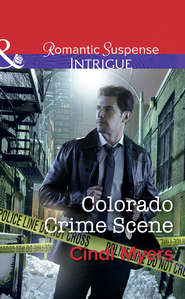По всем вопросам обращайтесь на: info@litportal.ru
(©) 2003-2025.
✖
Saved By The Sheriff
Автор
Год написания книги
2019
Настройки чтения
Размер шрифта
Высота строк
Поля
“Oh?” The lines on either side of Rowe’s mouth deepened. “How is she?”
“She’s still processing everything that’s happened, I think.”
“I hope she doesn’t have any plans to sue the city,” Rowe said. “I’ll have to consult our attorney, prepare for that possibility.”
“I don’t think she has any plans to sue,” Travis said.
“Do whatever you can to see that she doesn’t. I have to go now. You’ll keep me posted if any problems arise with the Milligans.”
“Yes, sir.”
The mayor moved on, and Travis resumed the walk to his office. Though he didn’t consider Rowe a friend, he appreciated that the mayor rarely involved himself in the operation of the sheriff’s department. Travis was free to do his job as he saw fit.
A ten-minute stroll took Travis back to the office. His office manager, sixty-eight-year-old Adelaide Kinkaid, who refused to even consider retiring—and was sharper than most thirty-year-olds—looked up from her computer screen. “How did it go?” she asked.
“About like I expected.” Travis hung his Stetson on the rack by the door. “She told me I’d ruined her life and tried not to let me see she was crying.” He shrugged. “In her place, I’d probably feel the same way. I guess I’m lucky she didn’t punch me.”
“You’re already beating yourself up enough,” Adelaide said.
“Why are you beating yourself up?” Deputy Gage Walker, Travis’s younger brother, emerged from his office. Taller than Travis by two inches and lighter than him by twenty pounds, Gage looked like the basketball forward he had been in high school, lean and quick.
“I went over to see Lacy Milligan,” Travis said.
Gage’s face sobered. “Ouch! That took guts.”
“It was the least she deserved. Not that she thinks so.”
“You did what you could,” Gage said. “Now the ball is in her court.”
“Not exactly.”
“What do you mean?” Gage asked.
“I mean, I still have to find Andy Stenson’s killer. And doing that will be easier with her help.”
“Wait a minute—you proved she was innocent—but you think she knows something?” Gage asked.
“She can at least walk me through Andy’s records, tell me about his clients. She was his only employee. She may have encountered his murderer, without knowing it.”
“What about Andy’s widow?” Adelaide asked.
“Brenda knows nothing about the business,” Travis said. “She’s told me everything she knows, but it’s not enough. I need Lacy to help me.”
“And I need a million dollars,” Gage said. “But I’m not going to get it.”
Travis moved into his office and dropped into his chair behind his desk, staring at the stack of papers in his inbox, thinking about Lacy. She was the first murderer he had ever arrested—the only one, actually. He was a deputy with only a few years on the force at the time, and murder was a rare crime in Rayford County. Sheriff’s department calls ran more toward theft, vandalism, domestic violence and what he thought of as tourist calls—lost hikers, lost wallets, lost dogs and people who had locked themselves out of their cars.
The murder of young attorney Andy Stenson had been a shock to everyone, but the chief suspect had been pretty clear. Lacy Milligan’s prints had been found on the murder weapon, she had been overheard arguing with Andy that afternoon and someone had seen a woman who matched Lacy’s description—from her build to her dark hair—outside the office shortly before the time of Andy’s death.
Travis hadn’t wanted to believe Lacy was a killer. She had always been the pretty, quiet girl in high school. After she had graduated high school and had gone to work for Andy, Travis had occasionally seen her downtown and they would say hello. He had even thought about asking her out, but had never gotten around to it.
But then Andy had died and the only evidence Travis could find pointed to Lacy. She hadn’t been able to produce anyone who could confirm her alibi—that she had been almost two hours away at her cousin’s basketball game. The cousin hadn’t seen her there, and no one else could remember her being there. And then the prosecutor had discovered funds missing from the law firm’s account, and a deposit in almost the same amount in Lacy’s account.
The jury had deliberated only a few hours before handing down a conviction. Travis had felt sick as he watched the bailiff lead Lacy from court, but he had been convinced he had done his job. He had found a murderer.
And then, only two months ago, he had been whiling away the time online and had come across a video someone had posted of a college basketball game—a game in which a promising young player—now a major NBA star—had made a series of free throws that hinted at his future greatness. Watching the video, Travis had recognized a familiar face on the sidelines. Lacy Milligan—a smiling, carefree Lacy—had stared out at him from the screen. A time stamp on the video corroborated her story of being at her cousin’s game. Further research backed this up. Here was her alibi. When Andy Stenson was stabbed in the heart, Lacy Milligan was two hours away.
From there, the rest of the evidence began to fall apart. Travis hired a former detective to review the case and the detective—who had retired to Eagle Mountain after a storied career with the Los Angeles Police Department—determined that what had looked like missing funds was merely a bookkeeping error, and the deposit in Lacy’s account was, as she had said, the proceeds from the sale of some jewelry she had inherited.
Travis had felt sick over the error. He hadn’t been able to eat or sleep as he worked feverishly to see that the decision in the case was vacated. He also did what he could to publicize his efforts to clear the name of the woman he had wronged. He wanted everyone to know that Lacy was innocent.
Now she was home. He didn’t blame her for hating him, though it hurt to see the scorn in her eyes. All he knew to do now was to work even harder to find the real killer.
The phone rang and he heard Adelaide answer. A moment later, his extension buzzed. “Sheriff, it’s for you,” Adelaide said. “It’s George Milligan.”
Lacy’s dad. Travis snatched up the receiver. “Mr. Milligan, how can I help you?”
“I think you need to come over here, Sheriff.” George Milligan’s voice held the strain of someone who had taken almost more than he could bear. “We’ve had a, well, I’m not sure how to describe it. An incident.”
Travis sat up straighter, his stomach knotting. “What’s happened? Is someone hurt? Is Lacy hurt?”
“Someone threw a rock through our front window.” George’s voice broke. “It had a...a note tied to it. Just one word on the note—murderer.”
“I’ll be right over,” Travis said. Hadn’t these people suffered enough? Hadn’t they all suffered enough?
Chapter Two (#u77305aa9-39a1-57c3-b723-54bec358ecce)
Lacy stared at the grapefruit-sized chunk of red granite that sat in the middle of the library table beneath the front window of her family home, shards of glass like fractured ice scattered about it. Strands of thin wire held the note in place, a single word scrawled crookedly in red marker, like an accusation made in blood.
Murderer! She had worn the label for three years, but she would never get used to it. Seeing it here, in the place she had thought of as a refuge, when she had believed her ordeal over, hurt more than she had imagined. Worse, the word hurt her parents, who had put their own lives on hold, and even mortgaged their home, to save her.
A black-and-white SUV pulled into the driveway and Lacy watched out the window as Travis Walker slid out of the vehicle and strode up the walkway to the door. Everything about him radiated competence and authority, from his muscular frame filling out the crisp lines of his brown sheriff’s uniform to the determined expression on his handsome face. When he said something was right, it must be right. So when he had said she had murdered Andy Stenson, everyone had believed him. Men like Travis didn’t make mistakes.
Except he had.
The doorbell rang and her father opened it and ushered Travis inside. Lacy steeled herself to face him. Travis hadn’t thrown the rock through her parents’ window, but as far as she was concerned, he was to blame.
“Hello, Lacy.” Ever the gentleman, Travis touched the brim of his hat and nodded to her.
She nodded and took a step back, away from the rock—and away from him. He walked over and looked down at the projectile, his gaze taking in the broken window, the shattered glass and the note. He leaned closer to study the note. “Has anything like this happened before?” he asked.
It took her a moment to realize he had addressed the question to her. She shrugged. “Not really. There were a few letters to the editor in the paper during my trial, and a few times when I would walk into a place and everyone would stop talking and stare at me.”
“But no direct threats or name calling?” he asked.
She shook her head. “No.”
“I can’t understand why anyone would do this now.” Her father joined them. Her mother was upstairs, lying down with a headache. “Lacy has been cleared. Everyone knows that.”











